DOVER — In a state plagued by a shortage of available housing for people of all incomes, a progressive Seacoast planning department has partnered with forward-thinking developers to provide an innovative solution to the workforce housing dilemma. It’s rare when an organization can truly be considered a market disruptor, but it’s difficult to describe this particular project in any other way.
The Cottages at Back River Road, the brainchild husband and wife duo architect Maggie Randolph and John Randolph, placed over 40 small homes in a cluster-style neighborhood on a parcel of land difficult to deal with. In one fell swoop, this solved their problem of retaining employees for their business and providing affordable accommodations to locals at 60% of the area median income as defined by New Hampshire Housing Authority.
Many of its residents work for municipal organizations such as police, fire, the education system or in health care. They’ve got caregivers, postal workers and construction contractors there, too.
“It didn’t come [without incentive]. Dover was fantastic,” said Maggie, who grew up in Sanbornton.
“That’s what allowed this project to happen — those incentives.”
The cottages were borne of necessity — Maggie and John operate assisted living and memory care facilities — and found it difficult to attract and retain employees, even those who could easily afford to live in the region, because there wasn’t enough available housing. During the COVID pandemic, the issue was exacerbated.
“How do we stay competitive?” Maggie wondered.
They built a seven-unit apartment building at their facility in order to offer employees somewhere to stay, but realized it wouldn’t be enough.
So they got to work. Maggie, the architect, and John, who served in the U.S. Air Force, developed 44 homes of 544 square feet in a cluster. They had support from employees within the city's planning department, who agreed to the development and included a condition for the units to be rented out at the affordable housing rate, set by the U.S. Department of Housing and Urban Development, in perpetuity. Staff who live there pay 30% less than the going rate.
The city’s planning department helped Maggie and John along the way, waiving a density fee, for example, and allowing them to “purchase” density from a nearby industrial zone through its “transfer of development rights overriding district” laid out in its zoning ordinance.
State RSA defines “affordable housing” as 30% of an individual's annual income. “Workforce” housing refers to housing affordable to a family of three earning 60% of the area median income. The New Hampshire Housing Authority sets the fair market rental rate, which the Randolphs agreed with Dover to cap rents at in perpetuity.
“We’re targeting people who make about $60,000 per year,” she said.
But the initial stages weren’t simple. The Randolphs applied for funding through InvestNH, a state program aimed at workforce housing development, but didn’t receive it. They persisted, and Maggie is hopeful they’ll receive funding through other mechanisms administered through HUD. For now, the project is funded privately.
“We certainly had overruns,” she said Wednesday morning.
But since the opening of their first units, the day before Christmas last year, they’ve been popular. Maggie said they quickly developed a waitlist.
It’s easy to see why. The property is clean and large, combining easy access to highways with a secluded and private environment. There’s ample parking, and the dwellings themselves are large enough to accommodate an individual or a couple, even a couple with a child. They’re comfortable and provide residents with a sense of pride and community.
Walking around the development, a visitor can see young couples, single people, and others of all ages. There are even a few children who reside with their families at the development, albeit not many.
“If we want vibrant communities, we need to attract younger folks, give them a reason to put down roots,” she said. “We need families.”
Of the 44 cottages on the property, 41 are occupied. Leases begin in November, so Maggie anticipates the vacant units won’t remain open long. They’ve got around a dozen of their own employees who live at the development at a discounted rate. If staff leave their company, they retain their housing at the standard rate.
“We’re shooting for dignity in housing,” she said.
But generally, developers can’t even consider altruistic endeavors without proper financial incentives. Typically, there are three ways to make money on a project, Maggie explained. A contractor is paid to build, a developer garners cash flow through rent long-term, or the property represents a long-term investment. For Maggie and John, that’s exactly what the cottages are — a long-term real estate investment.
“We have built this at no profit,” she said, noting they were able to keep costs low enough that they’ll come out ahead later on down the line. “We just don’t think we should gouge on the other side.”
Because the project’s cost remained low, and they’re able to maintain cash flow at the capped rental rates, they’ve been able to build equity in the project.
The site, about 8 acres in total, is developed on just about half that acreage, and didn’t come without its challenges. On one side of the property, they had to build a massive retaining wall, for example. The number of units constructed, 44, brings them to what Maggie deemed the “bare minimum” in order to remain financially viable. A greater density means reduced costs.
“We ended up doing tiny homes,” Maggie said. “These are rented out as 1-bedroom apartments.”
But with the economy, the price of rentals have increased. When they first started the development, average rent was around $1,000 each month. The new cap was raised to $1,582, according to NHHA.
“It has risen dramatically,” Maggie said.
But she doesn’t expect broader market rents to remain high for long, noting she pays close attention to rental prices in the region and increases have slowed.
“We’re seeing the slowing in rents,” she said.
The Randolphs don't see their development as a catch-all solution, rather one aspect of a broader solution that must include various ideas and techniques.
“We need housing across the spectrum,” she said. “One of the hallmarks of our country, and certainly our state, is choice.”
Maggie noted the lack of housing in the state puts a major strain on the economy. Without housing for employees, businesses could go under. Municipalities would lose tax revenues paid by those businesses, and residents would lose access to services and inevitably pay higher taxes to try to bridge the gap.
“If we don’t have people that work here, businesses will close,” Maggie said. “It’s all supply and demand — those are the things that scare me.”
While Dover served as a progressive example, other municipalities have followed suit in adopting a cottage ordinance, including Keene and Lebanon, Maggie said, noting John likes to say, “Moses didn’t bring zoning down on a tablet, we can change it.”
But the project was not without naysayers or skeptics. Maggie and John, during the project's initial proposal, went driveway to driveway, visiting abutters and answering questions. Other developers wrote letters to the city, communicating concerns regarding changes to traffic patterns and potential strains on the sewer and public education systems.
By the time their approval vote came, just a handful spoke against the project. Three abutters even reached out to inquire about gaining access to housing.
“Because of the fear of the unknown, people cling on to small things,” Maggie said.
Looking to the future, John and Maggie are exploring building a similar development in Durham, if the stars align. They hope that one could be even larger than in Dover ,and that people will view the Cottages at Back River as a story of success.
“I’m really proud of it, the people who live here are the backbone of our community,” Maggie said. “The people who work in our community.”






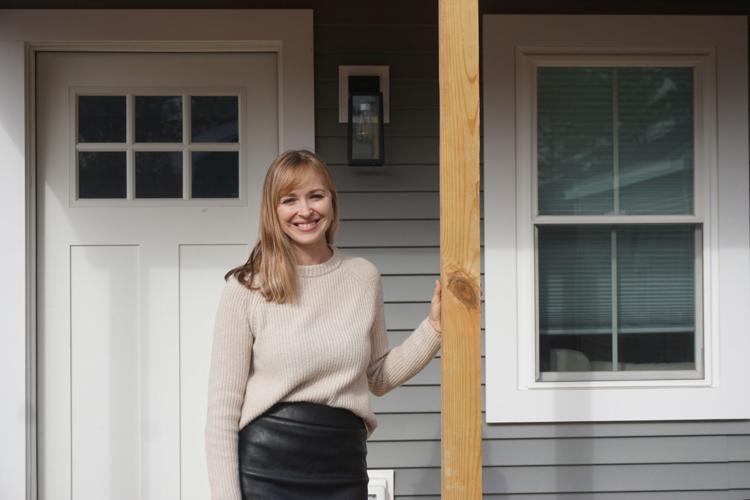
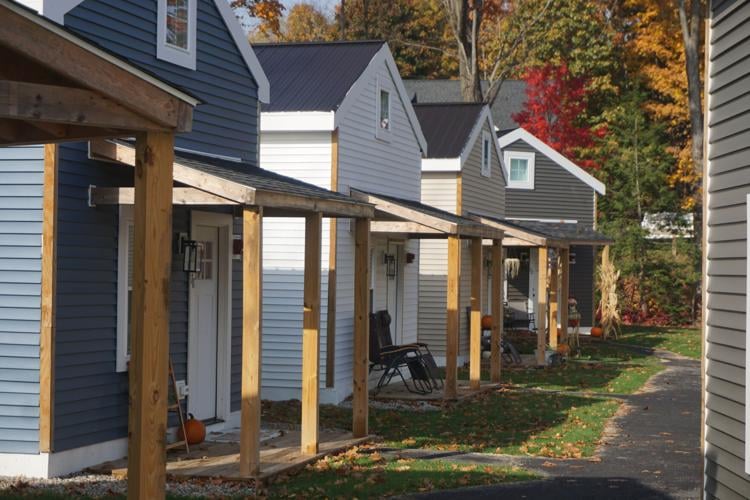
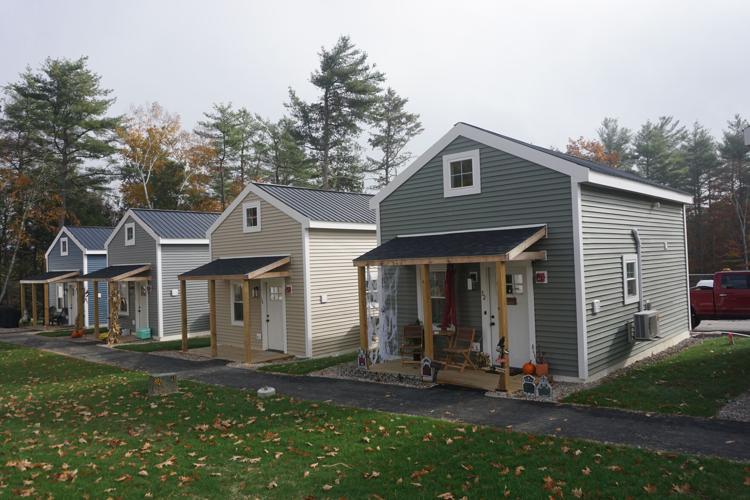
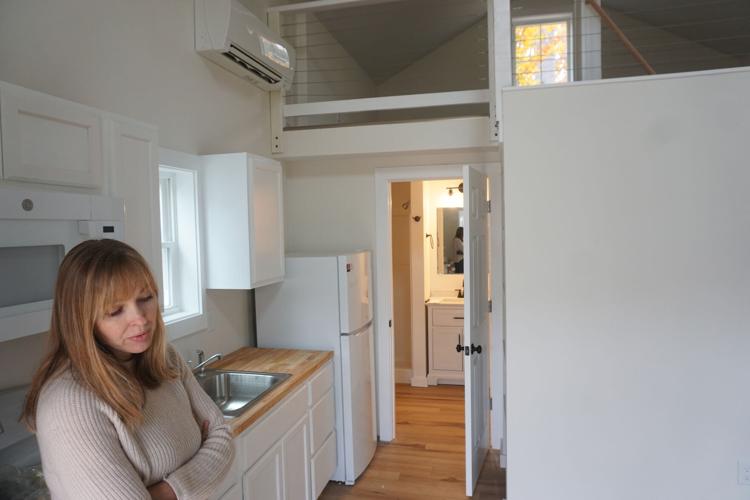
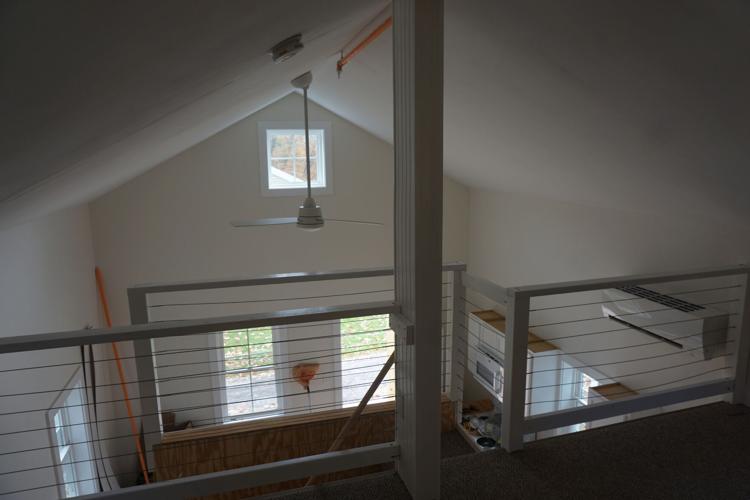











(1) comment
Love this idea ! Congratulations on creating a much needed home to soo many in need !
Welcome to the discussion.
Log In
Keep it Clean. Please avoid obscene, vulgar, lewd, racist or sexually-oriented language.
PLEASE TURN OFF YOUR CAPS LOCK.
Don't Threaten. Threats of harming another person will not be tolerated.
Be Truthful. Don't knowingly lie about anyone or anything.
Be Nice. No racism, sexism or any sort of -ism that is degrading to another person.
Be Proactive. Use the 'Report' link on each comment to let us know of abusive posts.
Share with Us. We'd love to hear eyewitness accounts, the history behind an article.